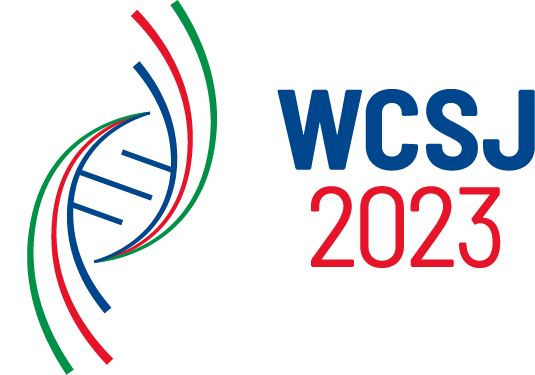|
Plenary: Challenges to food security in the face of global catastrophe risks
In times of crisis and global risks, very few issues have as many factors feeding into them as food security. The integrative measures envisaged by various global players link the actions that are needed to meet the challenges we face. These should be considered in terms of technology, economics and security to ensure the future of food security, but also how science validates the environmental the environmental impact and guarantees the viability of the processes.

Jennifer Wiegel is the Sub Regional Manager for Central America and a scientist in the Food Environment and Consumer Behavior research area of the Alliance of Bioversity International and CIAT. Her research includes work on agri-food systems, food markets and value chains for inclusion and sustainability and public procurement. She has a Ph.D. in Sociology from the University of Wisconsin-Madison and a Master's in Rural Sociology from the same University.

Juan Fernando Zuluaga is the National Territorial Coordinator for Antioquia. He has a PhD in Social Sciences from the University of Antioquia and a Master in RuralEconomics from the Federal University of Ceará-Brazil. Juan is a specialist in finance from the Latin American Autonomous University and Agricultural Engineer from the National University of Medellín.
Thomas Hartung, MD, PhD. Professor of environmental health sciences at the Johns Hopkins Bloomberg School of Public Health and Whiting School of Engineering and Professor for Pharmacology and Toxicology at University of Konstanz, Germany. He is leading the revolution in toxicology to move away from 50+ year old animal testing to organoid cultures and the use of artificial intelligence.
New keynote
Climate change: How to embroider the risks that put the stability of the most vulnerable at risk
Paola Andrea Arias Gómez is Professor of the Environmental School of the Faculty of Engineering of the University of Antioquia. In 2021 she was El Espectador’s Person of the Year and received the Medellin Council's Orchid Award for Scientific Merit.

Paola completed her undergraduate studies in Civil Engineering and a Master's degree in Water Resources Development at the National University of Colombia, Medellin. She was Head of the Environmental School of the Faculty of Engineering of the University of Antioquia and is now a member of the First Working Group of the Intergovernmental Panel on Climate Change (IPCC). She is also a member of the GEWEX Hydroclimatology Panel (GHP), the Amazon Regional Hydrogeomorphology Working Group (UNESCO) and the WCRP Science Plan Development Team (WCRP) Lighthouse Activities - My Climate Risk.
Parallel session:
In conversation: “Organoid intelligence”: the future of modern computing from human brain cells.
Biocomputing is a huge effort to compact computational power and increase its efficiency to overcome current technological limits. Researchers at Johns Hopkins delve into this technology that may one day produce computers that are faster, more efficient and more powerful than silicon-based computing and AI.

Thomas Hartung, MD, PhD. will present the team’s latest research and discuss its context, implications and what his hopes are for the field.
Thomas Hartung is the Director of Centers for Alternatives to Animal Testing (CAAT, http://caat.jhsph.edu) of both universities. CAAT hosts the secretariat of the Evidence-based Toxicology Collaboration (http://www.ebtox.org) and manages collaborative programs on Good Read-Across Practice, Good Cell Culture Practice, Green Toxicology, Developmental Neurotoxicity, Developmental Immunotoxicity, Microphysiological Systems and Refinement.
|
